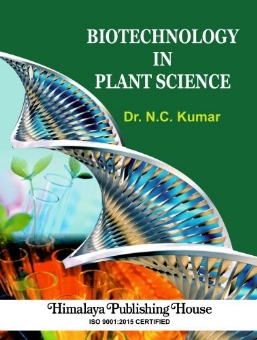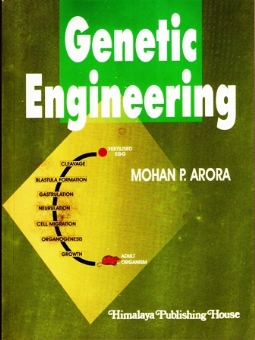The dramatic development of Biotechnology owes its major credit to the capabilities that we have achieved in recent years in gene analysis and gene manipulations. Application of this knowledge to various fields like agriculture, food, medicine, environment, and industries has provided us products and processes never available before. Understanding if ‘Nature’ itself could become easier and convincing with the development of tools and techniques of our modern genetics.
Genetic engineering, recombinant DNA technology, cloning, protein engineering, DNA fingerprinting, transgenic animals, gene therapy, anti-sense technology and many more techniques are amongst the recent contributions to the field of genetics. The whole new field of Genomics, Bioinformatics and Proteomics are a step further in this development. Most recent developments in the area of genetics like “Synthetic Biology” are also covered in this book. All this goes on, with the hope to achieve control and regulation of our life processes. The task is difficult, but stupendous and continuous efforts will definitely take us to our goals.
This book has proved useful to students of all the branches of biological sciences and the structure of information spread over 52 separate modules makes the reading of book more interesting.
Contents –
1. From Classical Genetics to Modern Genetics
2. Genetic Engineering and r-DNA Technology
3. Genetic Complexity
4. Enzymes used in Gene Manipulation of DNA and RNA
5. Restriction Endonucleases-Molecular Scapels
6. Isolation and Purification of DNA
7. Plasmids
8. Isolation and Purification of Plasmid DNA
9. Preparation of RNA
10. Autoradiography
11. Electrophoresis of DNA
12. Pulsed Filed Gel Electrophoresis (PFGE)
13. Nucleic Acid Staining
14. Nucleic Acid Labelling
15. Molecular Probes
16. Hybridization Techniques
17. DNA Fingerprinting (DNA Profiling)
18. Restriction Fragment Length Polymorphism (RFLP)
19. Blotting Techniques
20. Vectors
21. Gene Cloning
22. Screening of Recombinants
23. Protoplast Technology







